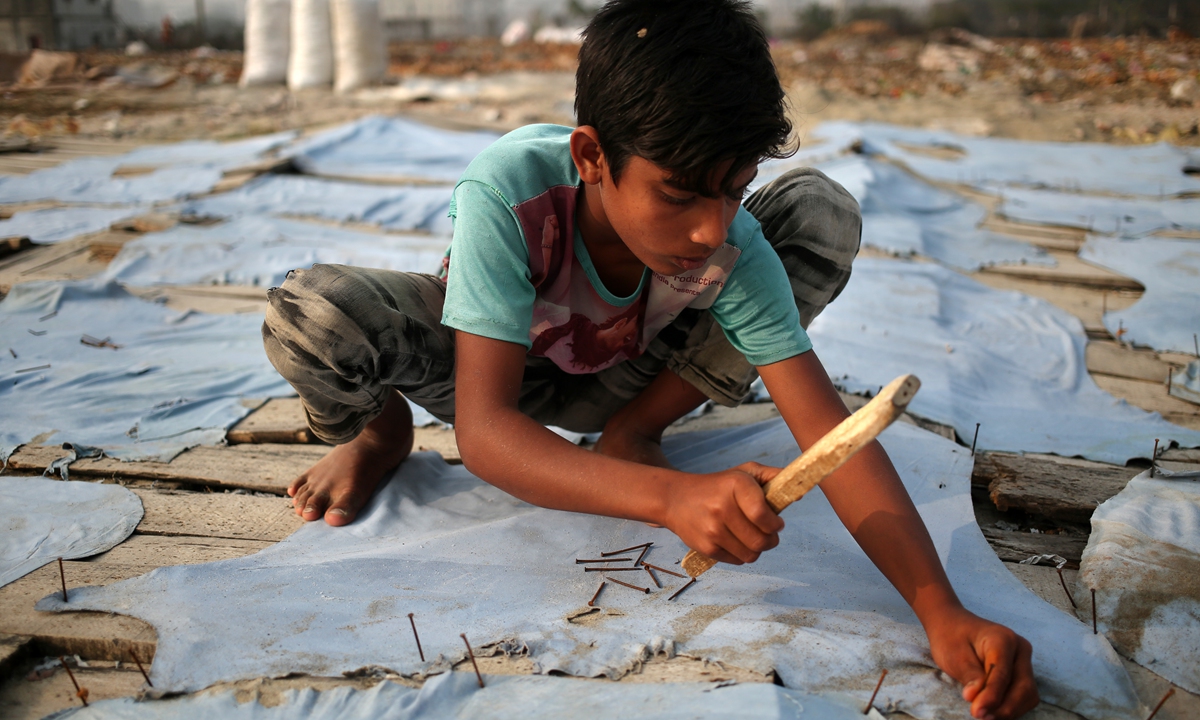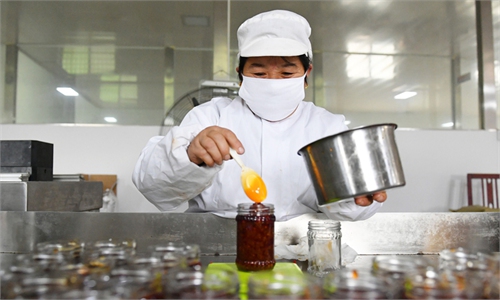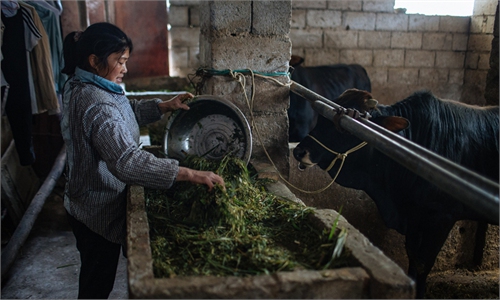Programmes tackling extreme poverty reach nearly 92 m people
Programs fighting extreme poverty reach nearly 92m people
Targeted efforts to improve the income of the world's poorest households are benefiting nearly 92 million people across 75 countries, according to a World Bank study released on Tuesday.
Designed to drive people out of extreme poverty, these programs usually combine cash or in-kind transfers, training and access to finance, and have seen an "unprecedented surge" in recent years, said the State of Economic Inclusion report.
The report comes as the COVID-19 pandemic is expected to push more than 100 million more people into extreme poverty, driving up numbers for the first time in two decades.

"One of the most stubborn challenges we face in development is positively transforming the lives of the extreme poor and vulnerable - a problem exacerbated by the COVID-19 pandemic," Mari Pangestu, the World Bank's managing director for Development Policy and Partnerships, said in a statement. "This report presents - for the first time - a systematic review of economic inclusion programs around the world, and sheds light on how governments can best invest in social protection, jobs, and financial inclusion."
Conducted through 2020, the report examined more than 200 programs in 75 countries which often involved collaboration between governments and international agencies.
It found governments globally were increasingly scaling up economic inclusion initiatives through social safety nets and many programs focused on helping women.
Shameran Abed, a senior director at development organization BRAC, said these initiatives aimed to give a "big push" to "help the poorest get into productive activity" through a complex mix of interventions such as mentoring and income support.
"Within two years you could actually put people onto a sustainable path out of poverty," he told Reuters.
"In the new post-COVID[-19] world, we do need to put people on more resilient livelihoods."
The report also highlighted the key challenges in expanding these interventions to help more people, including concerns of financial sustainability and reaching those in most need. "We, for years, had insufficient knowledge about costs and about effectiveness of programs," said Michal Rutkowski, the World Bank's global director for Social Protection and Jobs.
Designed to drive people out of extreme poverty, these programs usually combine cash or in-kind transfers, training and access to finance, and have seen an "unprecedented surge" in recent years, said the State of Economic Inclusion report.
The report comes as the COVID-19 pandemic is expected to push more than 100 million more people into extreme poverty, driving up numbers for the first time in two decades.

Angur(11), works at a Tanney to earn one dollar a day in a low-income area in Keraniganj, Dhaka, Bangladesh on Sunday, January 24, 2021. Photo: VCG
Currently an estimated 700 million people live in extreme poverty, meaning surviving on less than $1.9 a day."One of the most stubborn challenges we face in development is positively transforming the lives of the extreme poor and vulnerable - a problem exacerbated by the COVID-19 pandemic," Mari Pangestu, the World Bank's managing director for Development Policy and Partnerships, said in a statement. "This report presents - for the first time - a systematic review of economic inclusion programs around the world, and sheds light on how governments can best invest in social protection, jobs, and financial inclusion."
Conducted through 2020, the report examined more than 200 programs in 75 countries which often involved collaboration between governments and international agencies.
It found governments globally were increasingly scaling up economic inclusion initiatives through social safety nets and many programs focused on helping women.
Shameran Abed, a senior director at development organization BRAC, said these initiatives aimed to give a "big push" to "help the poorest get into productive activity" through a complex mix of interventions such as mentoring and income support.
"Within two years you could actually put people onto a sustainable path out of poverty," he told Reuters.
"In the new post-COVID[-19] world, we do need to put people on more resilient livelihoods."
The report also highlighted the key challenges in expanding these interventions to help more people, including concerns of financial sustainability and reaching those in most need. "We, for years, had insufficient knowledge about costs and about effectiveness of programs," said Michal Rutkowski, the World Bank's global director for Social Protection and Jobs.



